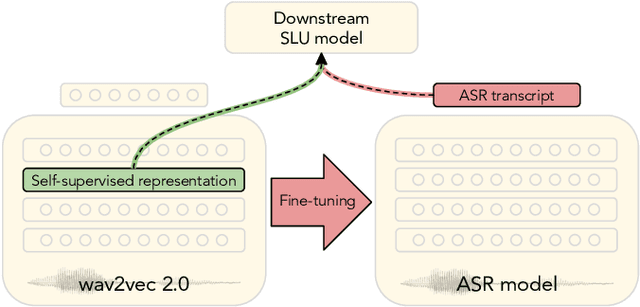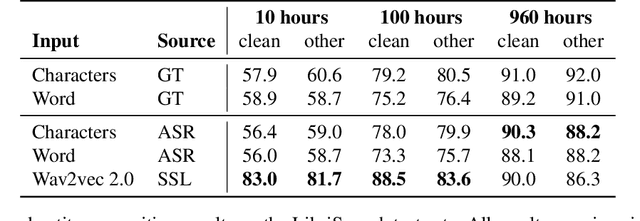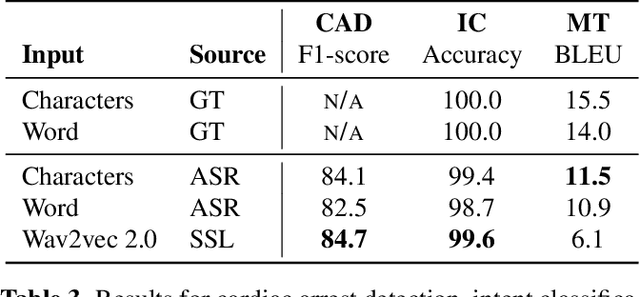Do We Still Need Automatic Speech Recognition for Spoken Language Understanding?
Paper and Code
Nov 29, 2021



Spoken language understanding (SLU) tasks are usually solved by first transcribing an utterance with automatic speech recognition (ASR) and then feeding the output to a text-based model. Recent advances in self-supervised representation learning for speech data have focused on improving the ASR component. We investigate whether representation learning for speech has matured enough to replace ASR in SLU. We compare learned speech features from wav2vec 2.0, state-of-the-art ASR transcripts, and the ground truth text as input for a novel speech-based named entity recognition task, a cardiac arrest detection task on real-world emergency calls and two existing SLU benchmarks. We show that learned speech features are superior to ASR transcripts on three classification tasks. For machine translation, ASR transcripts are still the better choice. We highlight the intrinsic robustness of wav2vec 2.0 representations to out-of-vocabulary words as key to better performance.
 Add to Chrome
Add to Chrome Add to Firefox
Add to Firefox Add to Edge
Add to Edge